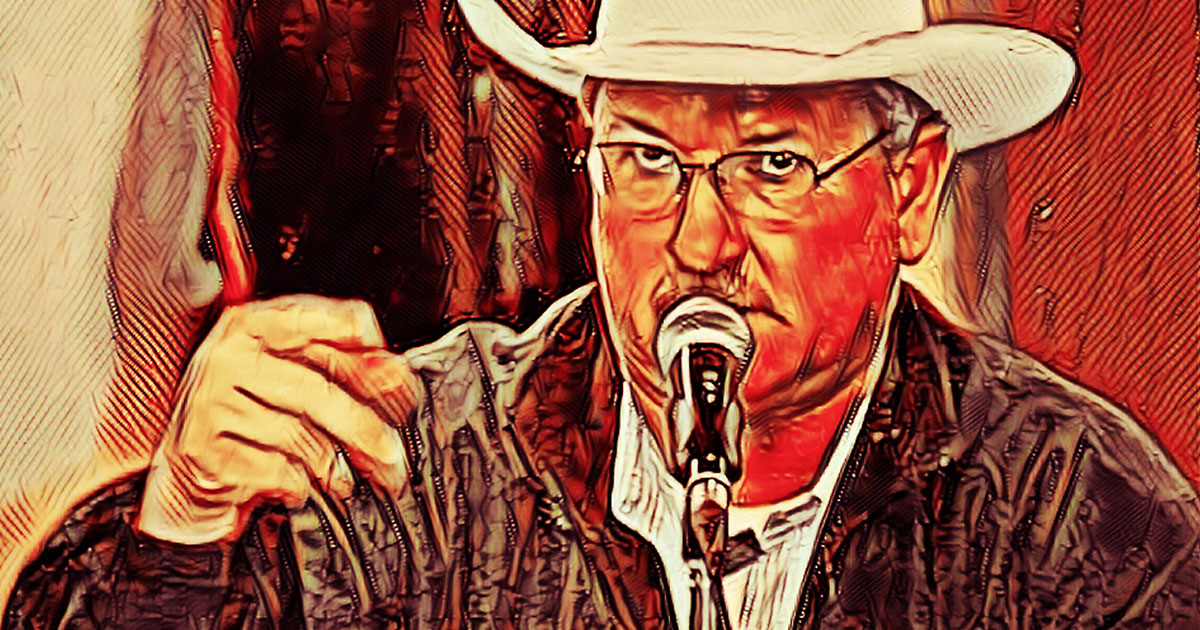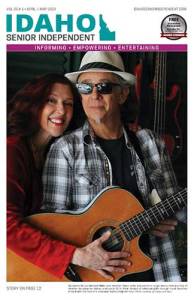Lonnie Rudd never doubted his life’s calling as an auctioneer. “I knew as young as first grade that was the only job for me,” said Rudd, 59. A resident of Wilder, he is ranked among the nation’s top livestock auctioneers.
“My earliest childhood memories are going to livestock sales with my dad and listening to the auctioneers,” said Rudd, who grew up on a ranch near Homedale. “My parents had a small mama cow outfit, and Dad was always looking to expand and improve his herd.”
When Rudd was about 2, his dad started taking him to sales.
“We’d spend most of the day there, then he’d wrap me up in his Levi jacket with the horse blanket lining and lay me on the seat behind him,” he said. “I’d fall asleep on the way home, still hearing the auctioneer’s chants in my mind.”
After graduating from high school, Rudd enrolled in the Western College of Auctioneering’s intense, two-week course in Billings, Mont.
“We’d start at 6 in the morning, have a few breaks and lunch, and on some days wouldn’t finish up until 1 in the morning.”
He practiced his cadence, articulation, tongue twisters, and counting in halves to 100 and then in reverse.
“You have to be able to move forward and back with the prices to keep momentum going,” he said.
He also learned there is much more to being an auctioneer than talking quickly.
“If you’re talking so fast people can’t understand you, it doesn’t do any good. I never did use a lot of filler words in my chant. I kept it to numbers. While you’re talking, you have to be able to look over a crowd and see who will bid.”
After completing the course, Rudd said he and other graduates were told they would be the ones to decide their futures.
“They gave us the tools then told us to go find work,” he said. “Back then in the late ’70s, most of the auctioneers were older men. Some took me under their wings, and I was grateful they mentored me.”
As Rudd became established in his profession, jobs took him to sales throughout Idaho, Nevada, and Oregon.
“I’d be in one place for a day then another. For several years, I’d fly to Fallon, Nev., with a plane ticket they bought for me. The sale was every Tuesday, and a car would be waiting for me at the airport. I’d do the sale, then beat feet back to the airport to fly home and get a little sleep before driving up to LaGrande, Ore., the next day for a sale there. Then I’d come back to the Treasure Valley sale in Caldwell. That pace will make you old quick.”
Since having back surgery in 2011, Rudd has slowed down his schedule. He works twice a week at livestock sales in Twin Falls and Emmett.
He is careful to not strain his voice. “I’ll switch with another auctioneer every 30 minutes,” he said. “If you ever get a head cold and keep talking, you risk cracking a vocal cord, and that takes forever to heal.”
After four decades of auctioneering, Rudd said he is able to read bidders’ body language in the sale barn.
“In some cases, I can tell people are going to bid before they even do,” he said. “You can watch facial expressions and know if someone’s interested in what’s being sold.”
With his professional skills honed, Rudd qualified six times for the World Livestock Auctioneer Championship. The Livestock Marketing Association organizes the annual contest to spotlight North America’s top livestock auctioneers and to salute their role in marketing livestock. Auctioneers must qualify for the national contest.
“There are 30 auctioneers competing in the national finals, and I’ve made it there six times,” said Rudd. “I’ve done all right but haven’t come away with the big cigar yet, but that’s OK. I’ve met wonderful people all over the country.”
Competitors are judged on the clarity of their auction chant, enunciation, vocal quality, appearance, and ability to catch bids. Interviews are also done to see if an auctioneer is knowledgeable about legislation and other issues affecting the livestock industry.
“At the contests, there’ll be five judges scattered in the crowd, watching how you conduct a sale and to see if you catch all the bids. You’re penalized if you miss a bid. You need to have a rhythmic, appealing tone to your voice, too, and keep the pace of the sale going while getting the best price possible.”
Rudd said he does not foresee retirement in his future.
“I’m not there yet, even though this job is hard on your voice. Plus, you need to keep your eyesight sharp, too, to see what’s going on in the sale ring and the crowd.”
No matter what he sells, Rudd said he strives to get the highest price possible for the seller.
“I work hard at selling, whether it’s farm equipment, one cull cow, or 250 to 300 head of feeder cattle. I give 110 percent because there’s nothing I’d rather do,” he said. “I love this business.”










